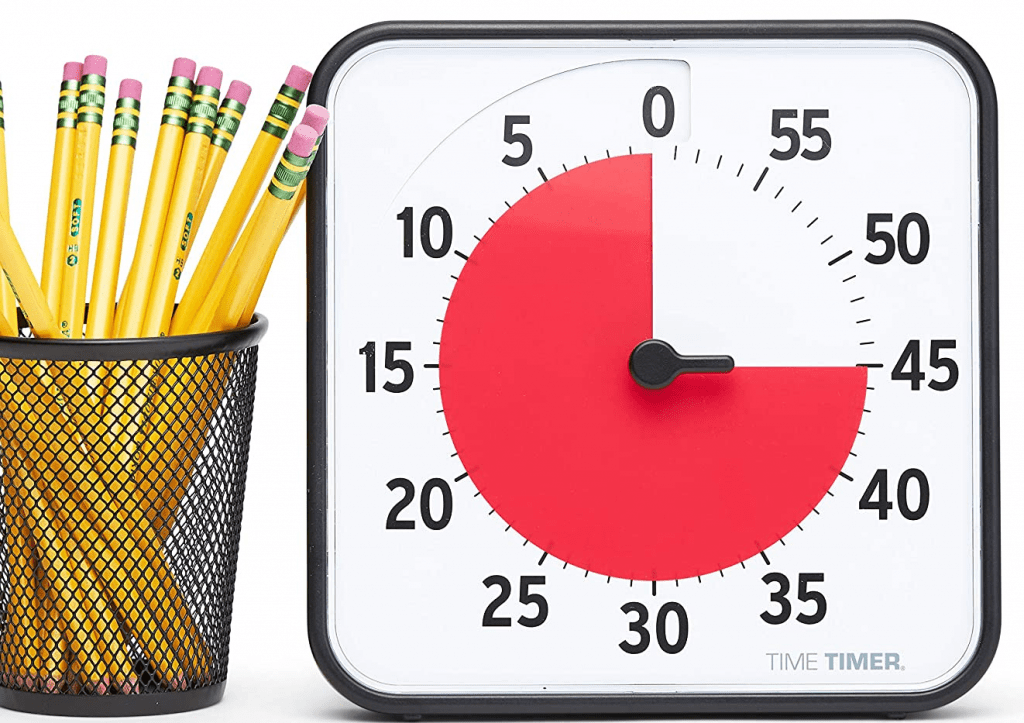Check Out These 8 Important Tips for Any Student Who Needs Help with Writer’s Block (Essay Writing Support)

|
Getting your Trinity Audio player ready...
|
Sponsored Post
First Some Important Background Information
What is Writer’s Block?
You may be sitting there at your computer or with paper in front of you, and you just don’t know what to put down. You stare at a blank page, and can’t get anything out. You are not alone. Writer’s block is a frustrating experience for many people.
Writer’s block can happen while working on a school assignment. It can also happen when trying to write creatively, or when writing to apply for a special program, job, or university. Depending on its severity, writer’s block can last hours or even days. If there is a deadline, students can start to feel anxious that they have nothing down yet as the due date approaches.
How Does Writer’s Block Impact Students with Disabilities?
Anybody can experience writer’s block. However, it’s important to note that writer’s block may be especially challenging for some students with disabilities.
For instance, students with symptoms of ADHD, autism spectrum, ODD, emotional disabilities, or Dysgraphia (a disability that impacts one’s ability to spell, write, and express themselves through writing); or students who have processing speed challenges, may need support with writing essays and getting past writer’s block.
Some reasons students with disabilities need help with writing essays or struck with writer’s block is because they may struggle with one or more of the following:
- initiating, planning, and completing assignments independently
- expressing thoughts in written or verbal ways
- maintaining the focus needed to think through all the ideas and steps required to complete an essay
- understanding mechanics (capitalization, punctuation, etc.), and having the skills to edit their work manually or through software programs
- typing or writing challenges due to fine motor needs (e.g., coordination or strength of hands muscles are affected)
- feeling an increase in anxiety with certain written topics, making focusing even more challenging
- taking an extraordinary amount of time to complete the assignment (some students become exhausted when they have a slower processing speed which requires them to engage in long periods of thinking before coming to an understanding, topic or answer)
Above are just some of the reasons students with disabilities may struggle with writing essays, but there are more. If writing essays is an area of difficulty for you personally, you may have different reasons for your challenges than the ones listed. The good news is, there are ways to get support for your (or your child’s/student’s) writing needs.
Check with Your Child’s School About Their Options for Writing Support
In the US public school system, parents can request an evaluation from their child’s school to determine the presence of a disability and how the school can support their child’s writing needs. Wherever you live or send your child to school, it never hurts to ask what supports are available.
What About When Writing Support from School is Not an Option?
Sometimes students struggle with writing essays that are not related to schoolwork. For instance, they may want to apply for a scholarship, college, or special school that asks for an essay. Or maybe they want to write their own stories at home. They struggle to get their thoughts on paper, but the dream is there. Additionally, in some cases, adults with disabilities need to write an essay, but they may not have the support they need at college or at home.
Below are 8 tips for people with and without disabilities, to work through writer’s block and get those ideas on paper (or on your tablet or computer).
1. Write (or Say) Something, Anything
Writer’s block is sometimes described as a fear of a blank page. And it is exactly this – if you get rid of the blankness, the fear will go away as well. So start writing whatever you have on your mind right now.
These intitial writings are not something you will submit. They are just to get you started. Pick a topic you love, draw a picture, type something silly, or even use your table, smart phone or computer for speech to text. Say what you want out loud and it will automatically type.
You can also record your voice and copy down what you said…no matter how silly or related it is to the topic. Even if the only writing surface you have is the ground and some sidewalk chalk…write something.

2. Do Not Force Yourself to Write Your Essay in Order
Most students write their papers in a linear fashion: from the beginning to the end. While it works sometimes for some people, it is not necessarily the right approach for everyone.
If you do not know how to begin your paper, you can start by writing a portion that may go in the middle. The other pieces will fall into place. When I work on a puzzle, if I can’t find how two pieces connect, I try to find other pieces, rather then staying stuck on the same ones. This is a simlar concept.
For instance, If you are writing about why you would be a good candidate for student council and you have no idea where to start, you can write (or speech-to-text) anything that comes to mind.
For instance you might write:
- I care about others
- I care about my school
- I want to help my school
- I want to help make good choices for the school
- I want to prevent problems
A tool like a graphic organizer can really help you pull your essay together as well. It will allow you to make a visual outline for your writing piece.
Sample Graphic Organizer

Below is a sample graphic organizer to put the essay on paper as well. It is called a hamburger graphic organizer. You can take the concepts from the box at the top and transfer them to the hamburger. Then refer to the hamburger as you type, write, or speech-to-text your essay on a blank sheet of paper, or a blank document on your computer.

3. Complete Your Editing at the End
Sometimes people get hung-up on frequent edits throughout their work. Wait until the end. One you have completed your writing piece, use an editing program like Microsoft Word or Grammarly. You can also ask a trusted family member or friend to check for any errors. Double or triple-check your work.
Microsoft Word (click review tab, then click read aloud) and TTSreader.com also read your text aloud so you (or your child/student) can read and listen for any needed edits at the same time.
4. Even a Vague Idea is a Start
We do not have to have a complete thought or sentence in our minds to get started on an essay. Sometimes, we have a vague idea and that is enough to begin. If you have even the slightest thought that could be related to your topic, start developing it. Even if you don’t see how you are going to connect it to the rest of your essay, it will come together in the end.
For instance, in the self-care example from above I could start with something as simple as, I want to write about self-care…or even just “self-care.” Two words are a start ?
5. Eliminate Distractions

Sometimes electronics can be a distraction when working on an essay. You may feel an urge to check your social media, look up an unrelated topic, or watch Youtube videos.
Listening to classical music or nature sounds through headphones while working may help increase your focus as well.
6. Block off Time
Choose a period of time to work on your essay, such as 1 pm to 2 pm, where you will remove potential distractions.
Pick a length of time where you know you will be successful. If five minutes is how long you feel you can focus at a time, then start there. Start wherever works for you, and then build your stamina from there if you wish. Five minutes this week, ten next week and so on and so forth.
6. Talk to Someone You Trust About Your Essay

Sometimes it is helpful to brainstorm with a parent, teacher, friend, family member, etc. This can be done in person, on the phone, on video chat, etc. Just talking through your thoughts with someone can give you more ideas about your topic. Talking about the different ideas may also help you organize your essay. Sometimes, the person you are talking to will share their ideas and knowledge as well, which may, in turn, give you more ideas (you can take notes or speech-to-text while brainstorming with someone as well). You can also have a graphic organizer with you to jotdown information in.
If there is no one to talk to, try recording your voice and listening to what you have to say about the topic. You can use that to generate more ideas, or to share at a later time when someone is available for you to talk to.
7. Find Essay Samples Online for Guidance
You can find sample essays on a variety of topics by doing a quick Google Search (example: sample essays on the importance of civil rights). You are not allowed to submit online essays or essays written by others, and claim it as your own work. That is illegal and called plagiarism.
However, you are allowed to use samples as a guide or example for how you can write your own essay.
You can also search for sample essay writing rubrics such as the one below:

8. Consider Support from a Writing Service
If you have tried all the strategies above, and you are still struggling to get your essay written, you can get support from an affordable essay writing service. A writing service is beneficial for individuals with disabilities who need to write an essay, and cannot receive support through school, tutoring, etc.
Students can utilize an essay writing service to review free writing samples and to purchase quality sample essays on their specific topic, to utilize as a guide for their writing piece. The student would need to make their own writing piece for submission, but they will have a sample with structure to provide support throughout the process.
Students can also message with their personal writer directly when using an essay writing service. They can type (or use speech-to-text) to talk about their specific topic and essay writing needs. They can also go over any questions or concerns.
Education and Behavior – Keeping Us on The Same Page with Strategies to Support Students Since 2014 (educationandbehavior.com)







